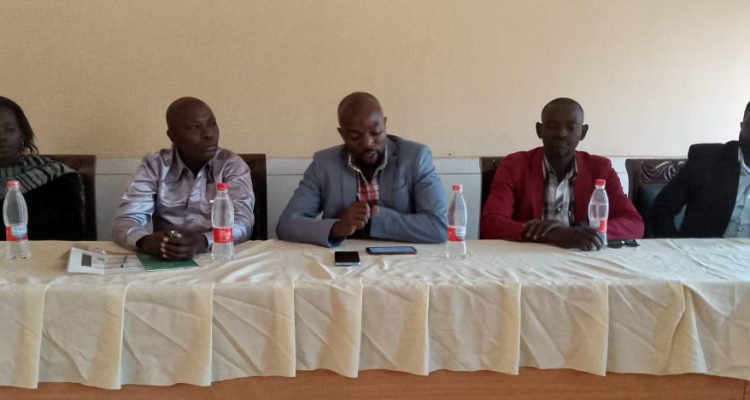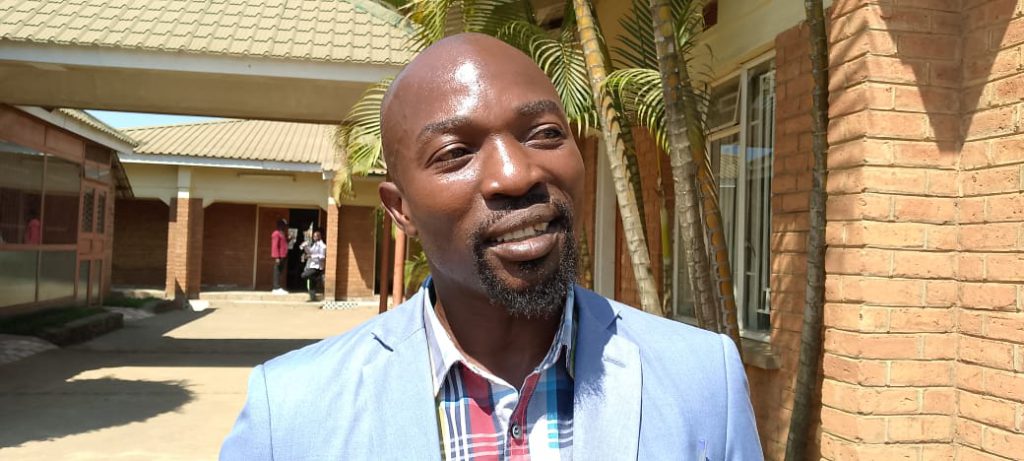
In a powerful display of resilience, the Young Human Rights Defenders Network (YHRDN), a consortium of youth-led civil rights activists, has stepped forward to address the impact of the recent plastic ban enforced by the Lilongwe High Court.
These dedicated young activists are shining a light on the plight of workers affected by the ban on thin plastics manufacturing.
YHRDN, a consortium of youth-led civil rights activists, has stepped forward to address the impact of the recent plastic ban enforced by the Lilongwe High Court.

These dedicated young activists are shining a light on the plight of workers affected by the ban on thin plastics manufacturing.
Despite the challenges posed by the thin plastics, these activists have adapted their strategies.
The Chairperson of the consortium, Mervin Nxumayo, emphasizes the importance of activism, which allows broader engagement on critical issues.
Nxumayo has called for international solidarity and equitable global distribution in pandemic response efforts.
“We make a public call to authorities highlighting the need to consider workers impacted by the plastic ban. As thin plastics manufacturing ceases, workers face job losses and economic uncertainty,” said Nxumayo.
He further stated that these activists aim to urge policymakers to address the collateral effect and ensure a just transition for affected workers their advocacy underscoring the importance of balancing environmental protection with social justice.
“The YHRDN aims to amplify its efforts, advocating for women’s rights, youth inclusion, and accountability from higher structures. Their commitment to a better future remains unwavering, even amidst adversity exemplifying courage and determination, advocating for both environmental sustainability and workers’ well-being,” reads the YHRDN statement.
However, the Lilongwe Wildlife Trust says it stands with environmental advocates against the recent High Court injunction preventing the Malawi Environment Protection Authority from enforcing the ban on thin plastics saying the decision, influenced by eleven plastics companies, undermines years of legal rulings and the collective right to a clean and healthy environment.
The Trust includes itself among the undersigned civil society organisations working in the environmental sector, stating to have learned with shock and disbelief that on 9 July 2024, eleven plastic companies obtained an injunction from the High Court in Lilongwe to stop the Malawi Environment Protection Authority (MEPA) from enforcing the ban on thin plastics under the Environment Management (Plastics) Regulations (2015).
The Trust says the injunction follows years of litigation that has had the courts of Malawi continuously ruling on the same issue regarding the ban on thin plastics.
“At this juncture, the people of Malawi cannot allow every new crop of plastic companies to enter the High Court and make a mockery of democracy and judicial process.
“We find that the plastic companies – namely City Plastics Industry, Flexo Pack Ltd, G. Plastics Wholesale and Retail, G.S Plastic Industry, Jagot Plastics Ltd, O.G Plastics Industries (2008) Ltd, Plastimax Ltd, Polypack Ltd, Qingdao Recycling Ltd, Sharma Industries, and Shore Rubber (Lilongwe) Ltd – are responsible for blocking every Malawian’s realisation of a clean and healthy environment,” reads the Lilongwe Wildlife Trust statement.
The Secretary of the Ministry of Natural Resources and Climate Change Yusuf Mkungula announced that government will enforce a ban on thin plastics less than 60 microns in thickness, effective July 8, 2024.
Announcing at a press briefing held in Lilongwe last week, Mkungula said this follows the recent dismissal of an appeal by one of the country’s plastics manufacturers by the Supreme Court of Appeal.
“Malawi Environment Protection Authority will be conducting tests on plastics in all manufacturing companies to ensure compliance with the new regulations,” Mkungula said.
The production, distribution, importation and sale of thin plastics are illegal, and those found violating these laws will face prosecution, he said.
On June 20, 2024, the Malawi Supreme Court of Appeal dismissed an appeal by Golden Plastics Limited, granting the government the authority to enforce the ban which many environmental activists have welcomed, praising the court decision as a significant step toward environmental protection.














